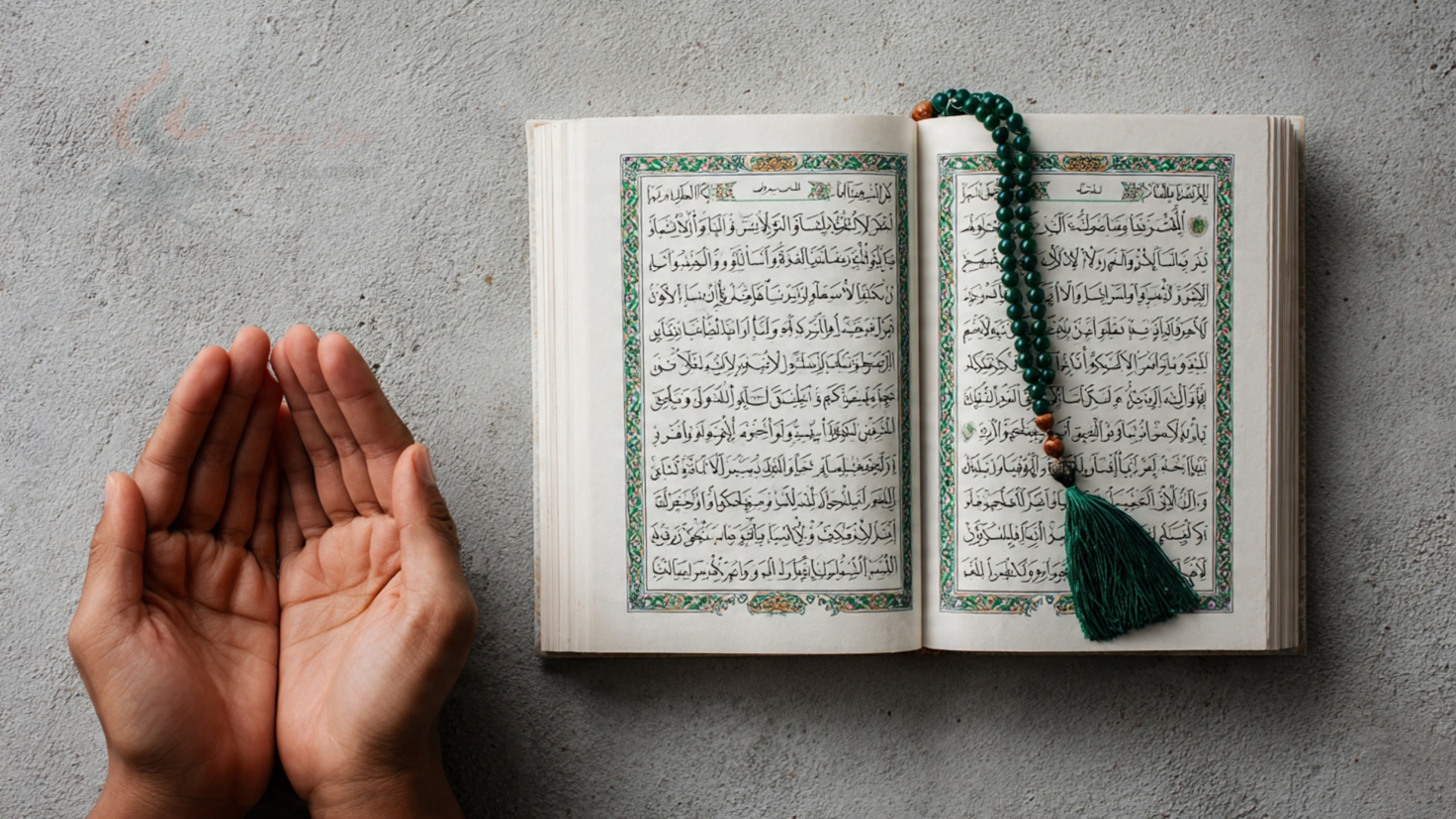Dreams and Interpretation in Islam are deeply meaningful and spiritual. Dreams may provide guidance or lessons for believers. Some hold divine significance, while others arise from daily thoughts or emotions. Understanding these dreams involves faith and knowledge.
Researchers and scholars have studied Islamic views on dreams. They explain that dreams can come from three sources. These include divine inspirations, personal thoughts, or whispers from Shaytan. Prophets often received dreams as divine communication, showing their strong spiritual role. Some studies connect dreams to human states, like stress or peace.
Dreams are not just random visuals. They mirror a person’s faith and soul. Believers feeling confused or lost may find peace through dreams. Dreams carry lessons, reminding believers to trust Allah’s plans with patience and devotion. This blog dives into various aspects of dreams and their interpretation according to Islamic teachings.
Understanding the Significance of Dreams in Islamic Teachings
Dreams in Islam are not random visuals or meaningless thoughts. They are deeply spiritual and meaningful. Prophet Muhammad (peace be upon him) described true dreams as part of “forty-six parts of prophethood.” This highlights their vital role in guiding and inspiring people.
Muslims believe that dreams can carry divine messages. The Quran mentions dreams in various contexts, including those seen by Prophets like Yusuf (AS). Such references emphasize that dreams are a channel through which guidance, warnings, and lessons are delivered. However, not all dreams carry the same weight.

Why Do Dreams Happen?
Dreams are a reflection of spiritual, psychological, and physical states. Islamic scholars state that they can come from Allah, Shaytan, or the individual’s mind. Thus, understanding the origin of a dream is crucial for interpreting its meaning.
Types of Dreams in Islam
Not all dreams hold divine inspiration. Islam divides dreams into three main categories, each serving a specific purpose.
Ru’yaa – True or Good Dreams
Ru’yaa are clear, pleasant, and hopeful. They come directly from Allah and often provide guidance or glad tidings. These dreams inspire the dreamer and strengthen their faith. Prophet Muhammad (peace be upon him) advised believers to share such dreams with loved ones.
Hulum – Bad Dreams and Their Impact
Hulum refers to frightening or distressing dreams. These are attributed to Shaytan. His goal in such dreams is to spread fear or despair. To counteract their negative effects, the Prophet recommended spitting lightly on the left side, seeking protection from Allah, and refraining from sharing the dream with others.
Self-Generated Dreams – Ramblings of the Mind
These dreams result from daily thoughts, worries, or memories. Unlike Ru’yaa or Hulum, they lack spiritual significance. They often merge mundane ideas or recent events into nonsensical plots. While entertaining, they are typically not worth interpreting.
Methods of Dream Interpretation in Islam
Interpreting dreams in Islam requires knowledge, wisdom, and caution. Misinterpretation might lead to false conclusions. Here are authentic methods for Islamic dream analysis.
Interpreting Dreams in Light of the Quran
The Quran serves as a timeless reference. A dream may symbolize specific verses or themes from the Quran. For instance, seeing water in a dream might hint at sustenance or purity, as water often symbolizes life in Islamic texts. Proper understanding requires matching dream symbols with Quranic meanings.
The Role of Sunnah in Dream Analysis
Prophetic traditions (Sunnah) provide further guidance. The Prophet (peace be upon him) provided examples of dream interpretation based on metaphors, situations, and events. For instance, he described crows as symbols of immoral people. Interpreting dreams under the framework of Sunnah eliminates guesswork and breeds accuracy.
Using Proverbs, Names, and Metaphors for Interpretation
Dreams often use proverbs or common symbols to convey their message. For example, a dreamer seeing a tall tree might symbolize growth or pride. Similarly, names in dreams could carry meaningful connotations. A name like “Saad” might represent happiness or prosperity. Experienced scholars excel in decoding such subtleties.
Rules and Etiquette for Dream Interpretation
Dream interpretation in Islam is not casual. It is a responsibility taken seriously. Below are actions a Muslim should follow for accuracy and blessings.
Praying for Guidance Before Seeking Interpretation
Sincere prayer ensures Allah’s guidance. It prepares the dreamer spiritually, aligns their intentions, and protects them from misleading interpretations. Seeking help from Allah embeds humility in the process.
The Importance of Honesty in Relating Dreams
Prophet Muhammad (peace be upon him) strictly forbade altering details of a dream. Doing so constitutes a grave sin. Relaying the entire dream with honesty ensures its true meaning is discovered.
Why Scholars and Trusted Individuals Should Interpret Dreams
Not everyone can decode dreams. Interpretation involves spiritual insight, Quranic knowledge, and understanding human nature. Recognized scholars or trusted, knowledgeable individuals should take on this task. Their expertise ensures proper spiritual interpretation and eliminates the risk of mistakes.
Prophetic Dreams and Their Relevance
Prophets in Islamic history often received guidance through dreams. This makes their visions unique and profoundly significant.
Dreams of Prophets as Revelations
The Quran highlights how Allah communicated with the Prophets through dreams. A prominent example is Prophet Yusuf’s vision about his family, symbolized by celestial bodies bowing to him. This dream foreshadowed his eventual leadership and reconciliation with his brothers.
How Prophetic Dreams Guide and Inspire Believers
Prophetic dreams serve as lessons for Muslims. They inspire patience, faith, and reliance on Allah’s wisdom. The stories of the Prophets’ dreams are reminders that Allah’s plans are always unfolding, even in adverse circumstances.
Practical Steps for Dealing with Dreams
Islam offers practical guidelines to handle dreams correctly. Whether good or bad, each dream should be approached thoughtfully.
What to Do After a Good Dream
Upon experiencing a good dream, gratitude toward Allah is essential. Sharing the dream with trustworthy and kind people is encouraged. Avoid boasting or sharing it openly with acquaintances who may misunderstand or misuse the information.
How to Handle Bad Dreams According to Sunnah
Steps include seeking Allah’s refuge, spitting lightly on the left side, and changing sleep positions. Avoid discussing the dream with anyone. This ensures that harmful interpretations fail to manifest.
Categorizing Dreams for Accurate Interpretation
Dream categorization helps determine their origin and significance. Dreams occurring before dawn are believed to carry greater spiritual meaning. Meanwhile, dreams triggered by stress or mental preoccupations fall into the self-generated category.
The Spiritual Significance of Dreams in Islam
Dreams are more than personal experiences. They represent a profound spiritual connection with Allah’s wisdom.
Dreams as a Part of Prophethood
Prophets modeled the significance of dreams by demonstrating their role in divine communication. For ordinary believers, dreams provide a portion of guidance and inspiration through proper interpretation.
How Dreams Offer Comfort, Guidance, and Strength to Believers
Dreams often reassure believers during difficult times. They serve as reminders that Allah’s mercy surrounds them. Through symbolism, they guide individuals toward better decisions and behavior. Dreams can bring peace to believers by confirming their righteous path.
Conclusion
Dreams in Islam hold a mirror to the spiritual and moral states of human souls. Often linked to divine wisdom, they remind believers to stay connected with Allah. Proper interpretation requires humility, sincerity, and reliance on authentic Islamic principles. While dreams are fleeting by nature, their impact is profound when derived through faith-based understanding. When approached with caution and Islamic teachings, they can illuminate paths to better spiritual awareness. Dreams are not mere illusions but whisperings of divine guidance in the believer’s heart.
Types of Dreams in Islam
Not all dreams hold divine inspiration. Islam divides dreams into three main categories, each serving a specific purpose.
Ru’yaa – True or Good Dreams
Ru’yaa are clear, pleasant, and hopeful. They come directly from Allah and often provide guidance or glad tidings. These dreams inspire the dreamer and strengthen their faith. Prophet Muhammad (peace be upon him) advised believers to share such dreams with loved ones.
Hulum – Bad Dreams and Their Impact
Hulum refers to frightening or distressing dreams. These are attributed to Shaytan. His goal in such dreams is to spread fear or despair. To counteract their negative effects, the Prophet recommended spitting lightly on the left side, seeking protection from Allah, and refraining from sharing the dream with others.
Self-Generated Dreams – Ramblings of the Mind
These dreams result from daily thoughts, worries, or memories. Unlike Ru’yaa or Hulum, they lack spiritual significance. They often merge mundane ideas or recent events into nonsensical plots. While entertaining, they are typically not worth interpreting.
Methods of Dream Interpretation in Islam
Interpreting dreams in Islam requires knowledge, wisdom, and caution. Misinterpretation might lead to false conclusions. Here are authentic methods for Islamic dream analysis.
Interpreting Dreams in Light of the Quran
The Quran serves as a timeless reference. A dream may symbolize specific verses or themes from the Quran. For instance, seeing water in a dream might hint at sustenance or purity, as water often symbolizes life in Islamic texts. Proper understanding requires matching dream symbols with Quranic meanings.
The Role of Sunnah in Dream Analysis
Prophetic traditions (Sunnah) provide further guidance. The Prophet (peace be upon him) provided examples of dream interpretation based on metaphors, situations, and events. For instance, he described crows as symbols of immoral people. Interpreting dreams under the framework of Sunnah eliminates guesswork and breeds accuracy.
Using Proverbs, Names, and Metaphors for Interpretation
Dreams often use proverbs or common symbols to convey their message. For example, a dreamer seeing a tall tree might symbolize growth or pride. Similarly, names in dreams could carry meaningful connotations. A name like “Saad” might represent happiness or prosperity. Experienced scholars excel in decoding such subtleties.
Rules and Etiquette for Dream Interpretation
Dream interpretation in Islam is not casual. It is a responsibility taken seriously. Below are actions a Muslim should follow for accuracy and blessings.
Praying for Guidance Before Seeking Interpretation
Sincere prayer ensures Allah’s guidance. It prepares the dreamer spiritually, aligns their intentions, and protects them from misleading interpretations. Seeking help from Allah embeds humility in the process.
The Importance of Honesty in Relating Dreams
Prophet Muhammad (peace be upon him) strictly forbade altering details of a dream. Doing so constitutes a grave sin. Relaying the entire dream with honesty ensures its true meaning is discovered.
Why Scholars and Trusted Individuals Should Interpret Dreams
Not everyone can decode dreams. Interpretation involves spiritual insight, Quranic knowledge, and understanding human nature. Recognized scholars or trusted, knowledgeable individuals should take on this task. Their expertise ensures proper spiritual interpretation and eliminates the risk of mistakes.
Prophetic Dreams and Their Relevance
Prophets in Islamic history often received guidance through dreams. This makes their visions unique and profoundly significant.
Dreams of Prophets as Revelations
The Quran highlights how Allah communicated with the Prophets through dreams. A prominent example is Prophet Yusuf’s vision about his family, symbolized by celestial bodies bowing to him. This dream foreshadowed his eventual leadership and reconciliation with his brothers.
How Prophetic Dreams Guide and Inspire Believers
Prophetic dreams serve as lessons for Muslims. They inspire patience, faith, and reliance on Allah’s wisdom. The stories of the Prophets’ dreams are reminders that Allah’s plans are always unfolding, even in adverse circumstances.
Practical Steps for Dealing with Dreams
Islam offers practical guidelines to handle dreams correctly. Whether good or bad, each dream should be approached thoughtfully.
What to Do After a Good Dream
Upon experiencing a good dream, gratitude toward Allah is essential. Avoid boasting or sharing it openly with acquaintances who may misunderstand or misuse the information.
How to Handle Bad Dreams According to Sunnah
Steps include seeking Allah’s refuge, spitting lightly on the left side, and changing sleep positions. Avoid discussing the dream with anyone.
Categorizing Dreams for Accurate Interpretation
Dream categorization helps determine their origin and significance. Dreams occurring before dawn are believed to carry greater spiritual meaning. Meanwhile, dreams triggered by stress or mental preoccupations fall into the self-generated category.
The Spiritual Significance of Dreams in Islam
Dreams are more than personal experiences.
Dreams as a Part of Prophethood
Prophets modeled the significance of dreams by demonstrating their role in divine communication. For ordinary believers, dreams provide a portion of guidance and inspiration through proper interpretation.
How Dreams Offer Comfort, Guidance, and Strength to Believers
Dreams often reassure believers during difficult times. They serve as reminders that Allah’s mercy surrounds them. Through symbolism, they guide individuals toward better decisions and behavior. Dreams can bring peace to believers by confirming their righteous path.
Conclusion
Dreams in Islam hold a mirror to the spiritual and moral states of human souls. Often linked to divine wisdom, they remind believers to stay connected with Allah. Proper interpretation requires humility, sincerity, and reliance on authentic Islamic principles. While dreams are fleeting by nature, their impact is profound when derived through faith-based understanding. When approached with caution and Islamic teachings, they can illuminate paths to better spiritual awareness. Dreams are not mere illusions but whisperings of divine guidance in the believer’s heart.




